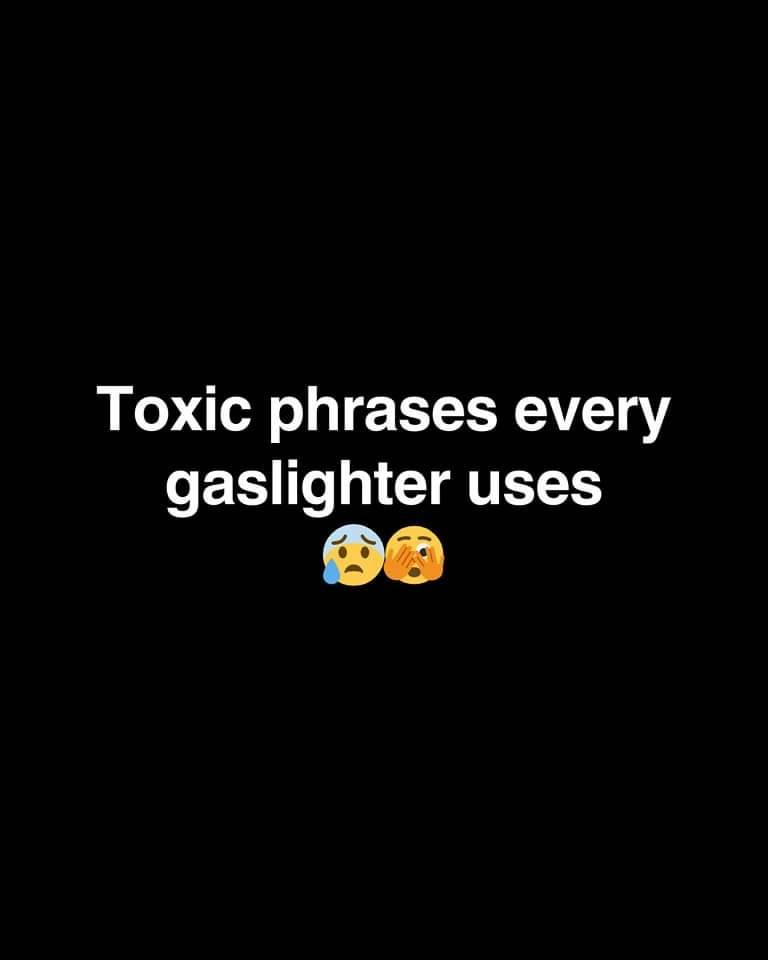You’re standing there again, waiting. And waiting. Your partner shows up late — for what feels like the hundredth time — and you finally gather the strength to speak up. But instead of a sincere response, you get brushed off.
“Five minutes isn’t a big deal,” they say, or worse, “You’re always so hung up on time — maybe that’s something you need to work on.” Before you know it, you’re second-guessing yourself. Was it really that big of a deal? Should you have just stayed quiet?
Here’s the truth: You’re not being overly sensitive. You might actually be experiencing gaslighting — and recognizing it is the first step in taking your power back.
What Is Gaslighting, Really?
The term “gaslighting” comes from the 1940 film Gaslight, where a man deliberately manipulates his wife into thinking she’s losing her mind, just so he can take advantage of her. While most real-life gaslighting isn’t quite as dramatic, it can be just as damaging.
In many relationships, gaslighting shows up in subtle ways. It might sound like harmless teasing, or even concern. But behind the words, the intention is the same: to make you question your own thoughts, memories, and emotions.
According to licensed therapist Dr. Melanie Shapiro, gaslighting is all about control. “It happens when one partner tries to dominate the other by slowly making them doubt their own reality,” she explains. “It can lead the victim to believe they’re the problem, or even that they deserve to be treated poorly.”
You’re Not Imagining It
Gaslighting doesn’t only happen in romantic relationships. It can exist in friendships, families, and even in the workplace. But in a romantic partnership, it can be especially hard to recognize — and even harder to confront.
Why? Because it’s rarely obvious. As clinical psychologist Dr. Joshua Klapow puts it, gaslighting is often hidden in everyday language. It’s not usually about dramatic lies or yelling matches. Instead, it’s the quiet invalidation that eats away at your confidence and makes you doubt yourself — one subtle comment at a time.
Pay Attention to the Words They Use
So how can you spot gaslighting before it fully erodes your self-trust? Start by listening. Carefully. Often, the signs are hidden in the phrases your partner uses when you bring up concerns or try to set boundaries. Do they constantly shift blame? Dismiss your feelings? Twist your words to make you feel unreasonable?
If your partner’s responses consistently make you feel small, crazy, or unsure of yourself, it’s time to take a closer look. Gaslighting is a serious form of emotional abuse — and no one deserves to feel manipulated or powerless in a relationship.
Key Phrases That Might Signal Gaslighting
1. “That never happened.”
One of the most common ways someone tries to gain control is by making you doubt your memory. They may flat-out deny something you know happened or try to make it sound like you’re confused.
Look out for responses like:
- “I never said that.”
- “You must be remembering it wrong.”
- “You were tired, maybe you weren’t thinking straight.”
Even more subtle versions may sound like:
- “Are you sure that’s how it happened?”
- “Let me tell you what really went down.”
Dr. Shapiro notes that this tactic shifts the focus from their behavior to your perceived flaws — like poor memory or being too emotional — making you less likely to speak up in the future.
2. “I’m just worried about you.”
This one can sound caring, but it may be used manipulatively. If your partner constantly tells you that you seem forgetful or emotionally unstable, it could be an attempt to make you question your own mental state.
Statements like:
- “You don’t seem like yourself lately.”
- “Maybe you should talk to someone.”
- “I’m just trying to help you. You’re forgetting a lot these days.”
While genuine concern is healthy, repeated insinuations that something’s “wrong” with you — especially in response to conflict — can be an attempt to shift blame and avoid accountability.
3. “You’re too sensitive.”
If your partner regularly invalidates your feelings by telling you you’re overreacting, that’s a huge red flag.
Instead of owning up to hurtful behavior, they might say:
- “You’re taking things too seriously.”
- “Everyone else thought it was funny.”
According to psychologist Dr. Sherrie Campbell, this tactic minimizes your emotions to avoid accountability. A healthy partner will take your feelings seriously — not treat them as a nuisance or inconvenience.
4. “Have you been talking to [insert name] again?”
Gaslighters often isolate their partners from supportive friends or family. If your partner is uncomfortable with you confiding in people close to you, especially when you’re feeling unsure or upset, it could be a control tactic.
Watch out for:
- “Your mom always puts things in your head.”
- “You know your best friend never liked me.”
Dr. Shapiro warns that one way manipulators gain control is by making you doubt the people who might otherwise help you see the truth. The goal is to narrow your world — until their version of reality is the only one you trust.
5. “Maybe this wouldn’t happen if you didn’t…”
Blame-shifting is another major tool in the gaslighter’s playbook. Rather than take responsibility, they redirect the focus onto your perceived shortcomings.
For example:
- You ask why they didn’t follow through on plans, and they snap back with, “Maybe I’d want to go out if you weren’t always so demanding.”
- Or you express hurt over a broken promise and hear, “Well, you’re the one who spent all our money.”
By targeting your insecurities, a gaslighter keeps you in a place where you’re always on the defensive — and less likely to hold them accountable.
So What Should You Do If This Sounds Familiar?
If several of these behaviors ring a bell, it doesn’t automatically mean your partner is intentionally gaslighting you. But patterns matter. And if you’re regularly left feeling confused, belittled, or emotionally unsafe, it’s worth taking a closer look.
What You Can Do:
-
- Talk to people you trust — friends, family, or a therapist — to help you sort through what you’re experiencing.
- Check in with yourself. Do you find it harder to trust your own judgment lately? Do you feel like you’re constantly walking on eggshells?
- Pay attention to isolation. Are you still connected to your support network? Or have you been slowly distancing yourself — possibly at your partner’s suggestion?
- Seek professional help. A licensed therapist can give you tools to recognize unhealthy dynamics and build your sense of self back up.
Dr. Shapiro reminds us: “You deserve a partner who builds you up — not one who tears you down or makes you feel like you’re losing your grip on reality.”
You Are Not Alone
Gaslighting is a deeply insidious form of emotional abuse. But recognizing it is a powerful first step. You’re not crazy. You’re not overreacting. And you’re not alone.
Many people have gone through the same — and come out the other side stronger, more self-assured, and surrounded by real love and respect.
If you’re feeling stuck, reach out. You are more than worthy of a relationship where your voice is heard, your truth is honored, and your feelings are safe.


